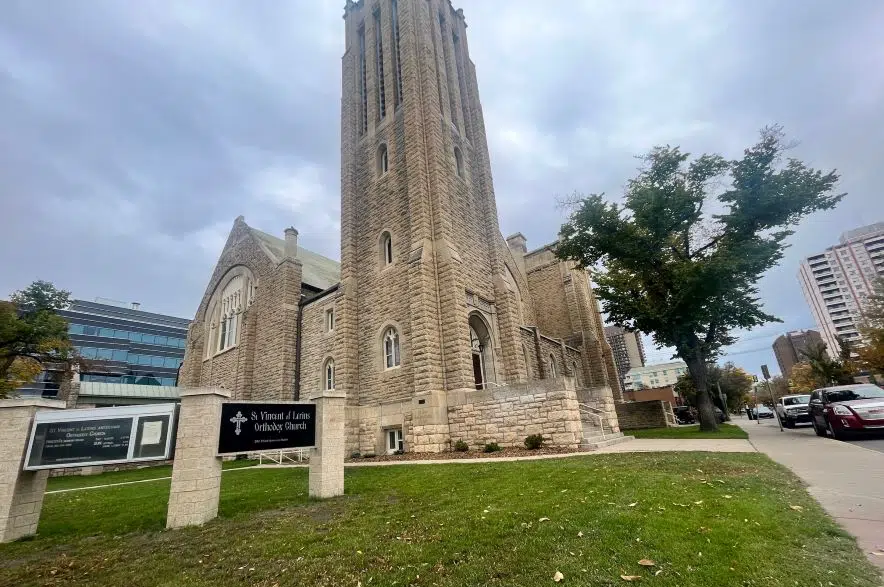Saskatoon’s city council has denied a request by a local church to amend a bylaw allowing it to remove a 100-year-old Casavant organ designated as a heritage item inside the building.
In 2017, the bylaw designated the original structure of St. Vincent of Lerins Orthodox Church (formerly Third Avenue United Church) and two interior elements as “heritage elements,” including the hammer-beam rafters on the ceiling and the Casavant organ.
That meant the Third Avenue building and the items were of significant historical importance to the community at large, and protected from demolition or any “unsympathetic” alterations, according to the Heritage Property Act.
According to a city report, when St. Lerins bought the church in 2021, the organ needed extensive renovation.
During a presentation to city council on Wednesday, Herman Fields, the priest at St. Vincent, explained that the church has no need for the organ, no money to restore it, and his congregation would never use it.
Orthodox services, he said in a previous presentation to the Heritage Committee, do not make use of musical instruments. He reiterated those sentiments at Wednesday’s council meeting.
“We want to build. We want to create a worship space that is an Orthodox worship space,” he said.
Responding to a question from Ward 1 Coun. Darren Hill about whether the church had any plans to maintain the organ when it bought the property, Fields said no.
“We don’t have any obligation under law or any private agreement to do so,” the priest explained.
As a non-profit, Fields said the church is “obligated to use the money that our donors give us to do what they intend, which is to have an Orthodox worship space.”
Fields said he would not be open to any outside offers to fix or maintain the organ, either.
“It’s not a museum. It’s not a publicly owned building. It’s private property and it belongs to a community that have their spiritual home there,” he said.
Fields also told councillors that while he respected the intention of letters sent to him requesting the organ be repaired and saved, no one has offered the church the money to do so.
He said council has to decide whether to keep the organ in the church – and accept that eventually it would become non-functional – or allow the organ to be removed.
Fields also told council no one to this point has even asked to play the organ – a request he said he would consider on a case-by-case basis – and he noted that renting out the church for events that might make use of the instrument is off the table.
“We’d never rent any part of our facility. Our worship space is sacred. It’s not for rent,” he maintained.
Hill told Fields that if the bylaw was amended to allow for the removal of the organ, it would likely never be replaced or fixed.
“We cannot simply go and remove designation off of heritage (elements) because a new owner has purchased the building and wants to adapt the use to their new use,” Hill said.
“They have to adapt around the heritage designation that exists.”
Ward 3 Coun. David Kirton didn’t support the recommendation to remove the organ either.
“With all due respect, you bought the wrong building,” Kirton told Fields.
“I believe that you might have walked into the building and saw that there was an opportunity for some change, but to lose an important piece like that … it is an important part of our community.”
Mayor Charlie Clark said while the situation was a unique one, it was the goal of council to balance preserving heritage buildings with the needs of the community.
“This is something that will have to be sorted out,” Clark added.
The recommendation from administration to allow for a change to the bylaw in order to allow the organ to be removed was defeated.







